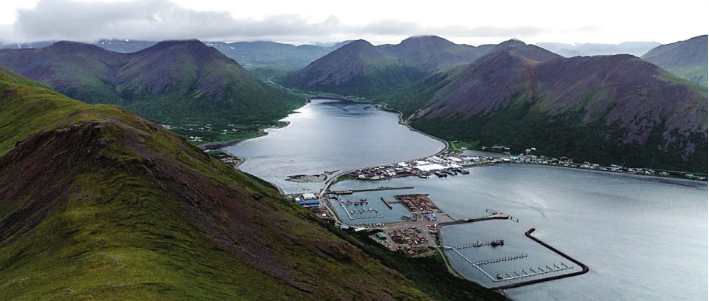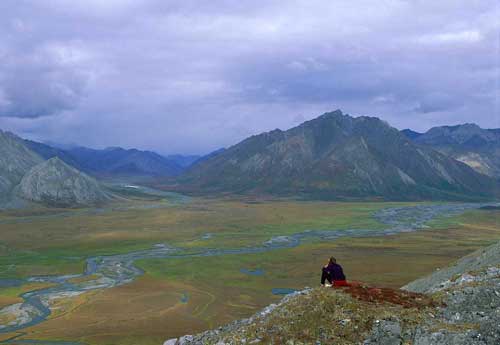WASHINGTON, D.C. – U.S. Sens. Lisa Murkowski (R-AK) Mark Begich (D-AK) and Congressman Don Young (R-AK) on Thursday jointly called on Interior Secretary Ken Salazar to do the right thing and approve a land exchange that would provide road access to an all-weather airport for the people of King Cove, Alaska.
After several requests, a group of King Cove residents met with Secretary Salazar on Thursday morning to talk about their efforts to win approval to construct a one-lane, gravel, non-commercial-use road through a small section of the Izembek National Wildlife Refuge to a nearby all-weather airport for use in medical emergencies.
“We have fought for safe, reliable transportation from our community to the Cold Bay Airport for decades,” said Della Trumble, lifelong Aleut resident and spokeswoman for the King Cove (Native) Corporation and the Agdaagux Tribal Council. “A marine link cannot work in an environment of severe, stormy weather and rough seas. A simple road corridor is the only workable, long-term solution, and it would save lives.”
|
|
Sen. Murkowski, the ranking Republican on the Senate Energy and Natural Resources Committee, has said she would use every tool available to her to win approval of the road, including blocking confirmation of Sally Jewel, who has been nominated to replace Salazar as Interior Secretary.
“This administration must put the health and safety of Alaskans above the inconvenience of migrating birds when deciding whether the land exchange is in the public interest. The decision by the U.S. Fish and Wildlife Service to select a preferred alternative in its final environmental impact statement opposing the exchange is just the latest example of this attitude within the Department of the Interior that somehow Alaska needs to be protected from Alaskans,” Murkowski said.
“The residents of King Cove deserve access to basic transportation for life and health needs that other Americans routinely take for granted,” Sen. Begich said. “I commend Secretary Salazar for finally agreeing to a meeting today with residents of this community, who have been asking for the secretary’s personal attention to this for years. I hope he was persuaded that a modest road to connect King Cove to the airport at Cold Bay is a reasonable and affordable alternative. I’ll continue working with Secretary Salazar and his successor, if necessary, to provide these Alaskans this vital transportation link.”
“I appreciate Secretary Salazar taking the time to meet with the representatives from King Cove today. He still has time to make the right decision, and I hope he took the time today to really listen to their concerns,”Rep. Young said. “This is not a new issue, the residents of King Cove have been dealing with it for years, and enough is enough. The community of King Cove has worked with the Congress, the state of Alaska, and local Native corporations to find a suitable land exchange for all parties involved, and yet bureaucrats within the Department of Interior seem to continue to hold the safety and preservation of waterfowl above the lives of Alaskans. I hope that Secretary Salazar took to heart the message from King Cove, and in the coming days takes some time to reflect and make the right decision before he leaves office, and returns to private life.”
Mp4 available here. Audio available here. YouTube link.
Background
The land exchange, which was approved by Congress in 2009, would add 56,000 acres of state and tribal lands to the Izembek National Wildlife Refuge on the Alaska Peninsula and allow the community of King Cove to build a single-lane, gravel road through 206 acres of the refuge to the all-weather airport in Cold Bay for emergency medical evacuation purposes. The 300-to-1 exchange would result in the first new land being designated as federal “wilderness” in Alaska in decades.
A number of deaths have been attributed to the lack of road access to the Cold Bay airport over the past 30 years. The worst accident occurred in 1980 when a plane crashed during an attempted medical evacuation, killing all four people onboard.
On Feb. 4, the U.S. Fish and Wildlife Service issued a final environmental impact statement opposing the exchange and emergency access road. As required by law, Secretary Salazar has the final word and could still find the land exchange in the public interest.
More information on the land exchange can be found at the Senate Energy and Natural Resourceswebsite.






